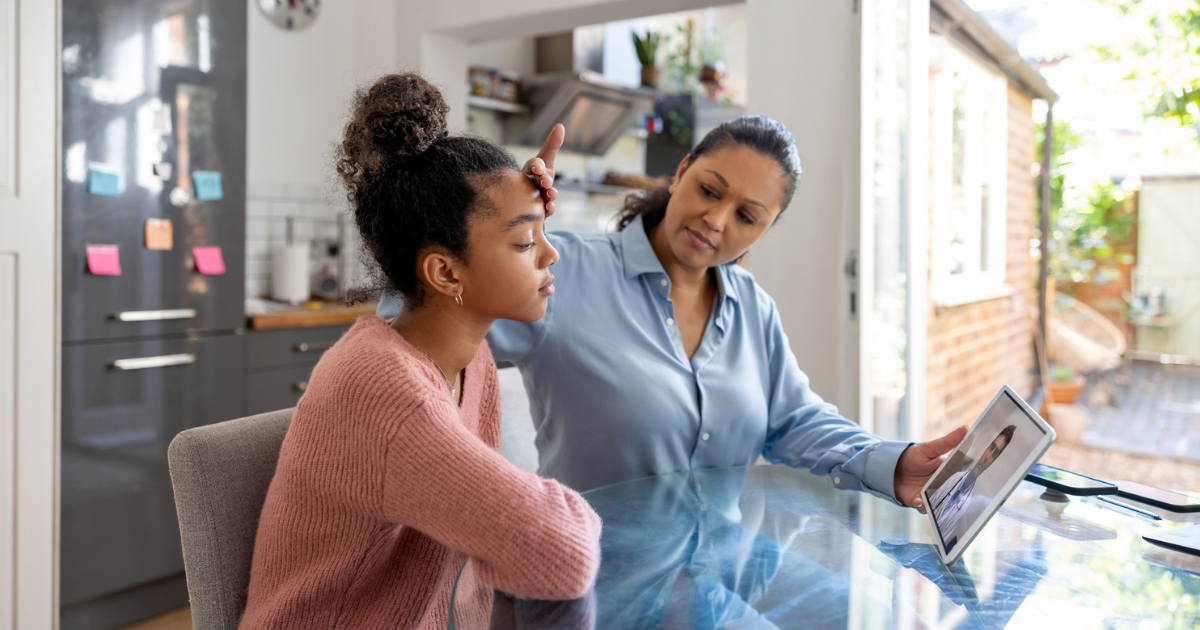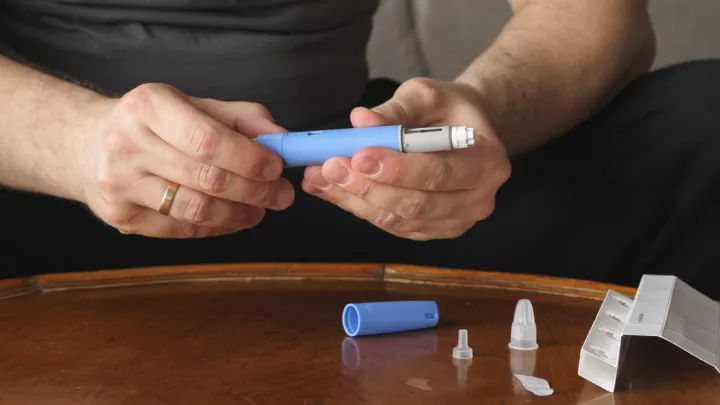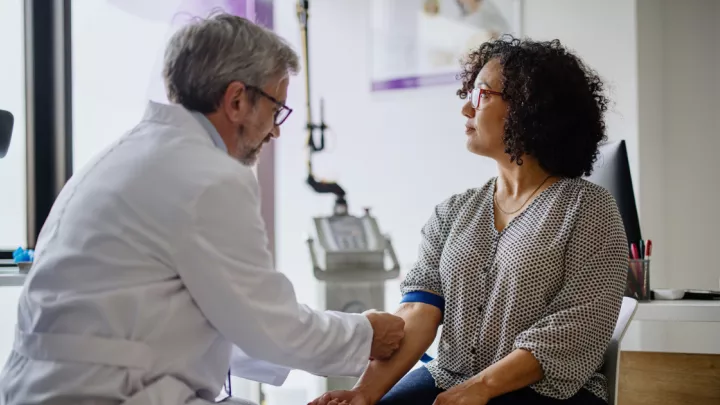What conditions can be treated through telehealth visits?

Making time to see the doctor can sometimes conflict with busy schedules. See if a virtual appointment is right for you.
When patients are busy or don’t feel up to an in-person doctor's visit, a convenient way to connect with a healthcare provider is crucial. Telehealth is a virtual way to see a local Nebraska Medicine board-certified healthcare provider.
For many conditions, telehealth appointments are as beneficial as in-person appointments. Telehealth allows patients to connect with providers from the comfort of their homes whenever it’s most convenient. Patients don’t have to take time from work or find child care with telehealth appointments.
Not all appointments can be handled with video conferencing (annual physicals, for instance), but for many routine visits, follow-ups and urgent care needs, telehealth is a convenient alternative to in-person clinic visits.
What are the different telehealth options with Nebraska Medicine?
E-Visits
E-Visits are written questionnaires about how a patient is feeling. After a questionnaire is filled out and submitted, a healthcare provider will review it. They’ll provide treatment recommendations as well as appropriate next steps to take. This option is only available to current patients through the Nebraska Medicine app or OneChart | Patient portal. E-Visits are useful for patients with busy schedules who have follow-up questions for their doctor, or who are looking for a quick assessment of their symptoms. Patients will often use an E-Visit when they have symptoms of pink eye, urinary tract infections, yeast infections, back pain, or a skin condition such as acne, eczema or a rash.
Scheduled Video Visits
Video visits can be scheduled with primary care doctors and specialists in the Nebraska Medicine app. These visits are a great option for follow-ups with your doctor about your care or for help with an ongoing condition such as chronic allergies, bouts of asthma or regular migraines.
On-Demand Video Visits
Nebraska Medicine family medicine expert Jason Patera, MD, advocates for On-Demand Video Visits with the Virtual Care Clinic as a way to get a quick, easy appointment for an acute illness or injury.
“The Virtual Care Clinic is great for ongoing conditions or urgent needs that don’t require testing,” says Dr. Patera. “COVID-19 and flu testing is an exception, as we can arrange for testing and treatment for those conditions through an On-Demand Video Visit.”
If sickness or a minor injury happens after regular business hours, patients can connect with a healthcare provider for quick evaluation from home. Virtual care doctors can make diagnoses and prescribe medication when necessary.
“Most medications, including antibiotics, are within the scope of telehealth,” says Dr. Patera. “Medication for a sinus infection is the most common. Our use of more potent, controlled medications is similar to that of urgent care.”
On-Demand Video Visits are safe and use a secure, HIPAA-compliant platform. These visits are never recorded, so your information is completely private, just as it is during in-clinic appointments.
What conditions can be treated through telehealth?
Through telehealth, providers can treat anything from respiratory illnesses to pain. Other common conditions include earaches, nausea, congestion, fever, allergies, and minor cuts and burns. Antibiotics can also be prescribed via telehealth.
Additionally, patients can use telehealth appointments for:
- Abdominal pain
- Asthma
- Back pain or strain
- Cold sores
- Headache
- Head lice
- Heartburn
- Influenza
- Joint pain
- Motion sickness
- Pink eye
- Skin conditions (acne, eczema, rash)
- UTI
- Sneezing
- Sore throat
- Sunburn
- Swimmer’s ear
- Tick bite
- Tobacco cessation
- Yeast infection
Telehealth has many benefits for patients and doctors because it reduces the number of visits needed and provides convenient care without the commute. Information shared is safe and private, and the process is easy.
Telehealth also keeps clinic locations from becoming overwhelmed, and patients don’t have to wait as long to be seen by a provider.
Insurance covers most telehealth visits, but it’s always best to check with your provider.
Those who are new to telehealth will want to ensure they have a smartphone, tablet or PC as well as a stable internet connection for a video visit. Be in a well-lit, quiet space with few distractions, and bring any current medications and as much information as possible to review and discuss conditions.
Skip the wait and see a doctor from the comfort of your home! Get the Nebraska Medicine app or visit NebraskaMed.com/Telehealth.







